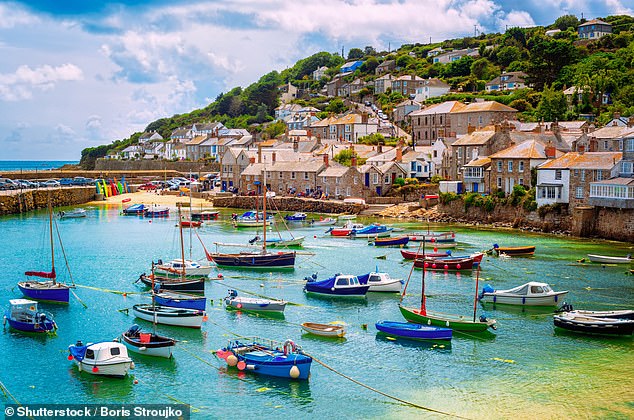The European Union will demand continued fishing rights in British waters as the Labour government seeks to renegotiate a fair trade deal, its Brexit negotiator has told MEPs.
‘We have to ensure continued access to United Kingdom waters for EU fishing fleets,’ Maroš Šefčovič told the European Parliament.
The bloc’s fishing quota in British waters was slashed by a quarter in the wake of Brexit, but fishermen on the continent were given access to certain coastal waters subject to rolling agreements.
With the existing deal set to expire in 2026, British fishermen and government officials fear that Labour could concede rights in exchange for a better trading deal with the EU.
Brussels was said to be preparing a list of ‘offensive interests’ to use in talks with the new Labour government as early as July, with access to British fishing waters expected to be one of the main points of contention in talks.

The EU is expected to push for a multi-year fishing deal in its future talks (File)

Maros Sefcovic speaks during the opening of the 8th Austrian World Summit in Vienna in June
Under the UK-EU Trade and Cooperation Agreement, 25 per cent of the overall existing EU quota in UK waters will be transferred back to the UK over the course of several years through until June 30, 2026.
After this, negotiations were to take place on an annual basis, leaving room for agreements spanning several years.
A specialist fisheries committee has been tasked with meeting three times a years to manage the agreement.
The EU is expected to try to negotiate a multi-annual deal with the UK to move past the current, less certain state of holding annual talks.
The Telegraph reports that government officials fear the EU will only renegotiate the Brexit trade agreement if Labour bends to its demands on fishing.
Before the election, senior Eurocrats predicted that fishing would take priority at any talks with the EU after Labour came into power.
One told The Times in June: ‘If a new government wants new trade talks, France will make sure that any trade negotiations by the European Commission are linked to fisheries.
‘The problem for Britain is that the marine protection areas are where the fish are that the French, and others, want to catch.’
British diplomats were said to be alarmed earlier this year when the EU, under pressure mainly from France, began pressing to begin the fishing negotiations and triggered a dispute mechanism over British marine environmental protection measures.
In 2022, the most recent year available, UK vessels landed 640 thousand tonnes of sea fish with a value of £1.04 billion.
This represented a two per cent fall in quantity – but a value increase of 13 per cent, driven mostly by rising fish prices.
Landings into the UK by foreign vessels in 2022 fell four per cent on 2021’s figures, as landings of UK vessels abroad fell five per cent.
The UK is a net importer of fish, still, with a crude trade gap of 316 thousands tonnes in 2022, but falling from 322 tonnes a year prior.
The EU heralded the renewal of its fishing deal for 2024 late last year, which they said would ensure ‘stability and certainty for EU fishers and for the industry’.
Luis Planas Puchades, Spanish Minister for Agriculture, Fisheries and Food, said at the time the deal was reached ‘thanks to the good will demonstrated by both parties’.

Under the post-Brexit UK-EU trade agreement, 25 per cent of the overall existing EU quota in UK waters will be transferred to the UK over a five-and-a-half-year transition period to 2026

Then-Prime Minister Rishi Sunak on a boat during a visit to North Devon, while on the General Election campaign trail. Picture date: Tuesday June 18, 2024
While on the campaign trail, Sir Keir tried to play down any possible revers of Brexit in regards to fishing rights and said he acknowledged their importance for British fisherman.
He said at the time: ‘I’m not going to go into negotiations which haven’t even started yet.
‘But I know how important it is to defend our fishing rights and how important that is to our fishing communities.
‘I think they feel they’ve been let down because they were told they would get a better deal than they got, and we wouldn’t let them down in this and trade away their rights, because that access and that fishing is vital to those communities.
‘And I think just at the moment they are feeling they’ve been very let down.’
While Labour’s manifesto said it would not re-join the bloc’s single market, customs union or allow freedom of movement again, it did pledge to ‘deepen ties’ with Brussels.
This article was originally published by a www.dailymail.co.uk . Read the Original article here. .


